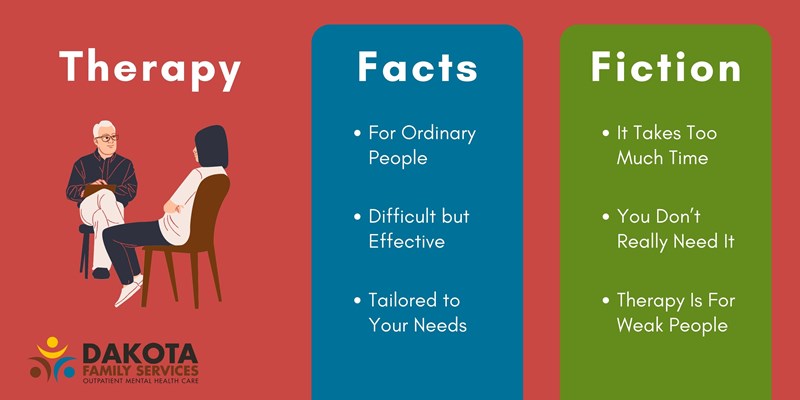The Relevance of Mental Health And Wellness: a Deep Dive Into Counseling, Therapy, and Their Advantages
Mental wellness considerably forms specific wellness, affecting ideas, emotions, and behaviors. Counseling and therapy work as crucial methods for healing and personal advancement. They supply organized support, helping individuals navigate life's challenges. Yet, many continue to be unaware of the specific sorts of therapy offered and their unique benefits. Comprehending these facets is essential for anyone taking into consideration professional mental health and wellness assistance. What complies with may light up paths to strength and fulfillment that numerous overlook.
Understanding Mental Health And Wellness and Its Impact
Mental health and wellness is frequently forgotten, it plays a crucial duty in total health and day-to-day functioning - Mental Health Resources. It encompasses psychological, psychological, and social variables that affect just how individuals assume, feel, and act. An individual's psychological health and wellness directly impacts their capability to handle anxiety, associate with others, and choose. Poor mental wellness can bring about numerous problems, including anxiety, depression, and trouble in preserving partnerships, every one of which can hinder individual and expert growth.Furthermore, psychological health and wellness has far-ranging implications for physical health. Persistent anxiety and untreated psychological conditions can add to different physical conditions, such as cardiovascular disease and weakened immune responses. On the other hand, positive mental wellness cultivates strength, enabling people to deal with life's obstacles successfully. Comprehending psychological health and wellness's importance is important for cultivating supportive environments that promote emotional wellness, therefore boosting the high quality of life for individuals and communities alike
The Various Sorts Of Counseling and Therapy
In the domain name of psychological wellness, different therapy and treatment kinds deal with diverse needs. Individual counseling techniques concentrate on individual problems through one-on-one sessions, while team treatment characteristics foster shared experiences and assistance amongst individuals. Comprehending these methods is necessary for selecting the suitable intervention for different challenges.
Private Counseling Approaches
Various individual counseling techniques exist, each developed to address details mental health and wellness concerns and satisfy differing customer needs. Cognitive Behavior Modification (CBT) concentrates on identifying and transforming unfavorable thought patterns, while Psychodynamic Therapy explores past experiences and unconscious processes. Humanistic Treatment stresses personal development and self-actualization, promoting an encouraging environment. Interpersonal Treatment (IPT) targets partnership issues and communication patterns to boost emotional health. Furthermore, Approval and Dedication Therapy (ACT) encourages clients to approve their ideas and sensations while devoting to individual values. Each approach supplies unique techniques and philosophies, enabling specialists to tailor their techniques to the person, thus improving the restorative experience and promoting psychological wellness recuperation.
Team Treatment Dynamics
Team treatment characteristics include different healing methods that take advantage of the power of common experiences and interpersonal partnerships. This type of therapy usually includes diverse groups, promoting a safe setting for individuals to reveal ideas and feelings. Key kinds of group treatment include support system, which provide emotional support; process-oriented teams, concentrating on social communications; and psychoeducational groups, targeted at giving expertise about psychological health concerns. The characteristics within these teams can enhance self-awareness, as members frequently assess their behaviors in connection with others. Furthermore, group treatment cultivates a sense of belonging, decreasing feelings of isolation. Through shared stories and cumulative problem-solving, individuals can develop coping approaches and gain insights, eventually contributing to private growth and recovery.
The Duty of Counseling in Mental Health And Wellness
Counseling plays an essential duty in mental health and wellness by using various approaches tailored to individual demands. These approaches give professional support that can lead to significant improvements in emotional wellness. Comprehending the different kinds of therapy can aid individuals make educated choices concerning their psychological wellness treatment.

Types of Therapy Approaches
While various therapy strategies exist, each deals special methods and understandings into psychological wellness treatment - Cognitive Behavioural Therapy. Amongst one of the most prominent are cognitive-behavioral therapy (CBT), which concentrates on modifying adverse idea patterns; psychodynamic therapy, which explores unconscious procedures and childhood experiences; and humanistic techniques, stressing personal growth and self-actualization. Additionally, solution-focused quick therapy prioritizes finding remedies in today rather than delving right into issues. Group therapy fosters area and shared experiences, while family treatment addresses relational characteristics within domestic frameworks. Each approach caters to various needs, lining up with individual preferences, problems, and therapeutic objectives. Comprehending these techniques helps clients make educated choices about their psychological health journey and promotes efficient therapy tailored to their unique situations
Benefits of Expert Assistance
Countless individuals here are the findings profit from specialist advice in handling their psychological wellness challenges. Counseling offers a secure space for clients to explore their ideas and sensations without judgment. This healing environment fosters self-awareness, allowing individuals to determine patterns in their habits and develop healthier coping methods. Specialist assistance likewise provides accessibility to evidence-based techniques that can reduce signs and symptoms of anxiousness, depression, and various other psychological wellness issues. Additionally, therapists can assist in setting realistic objectives and use assistance in achieving them, improving total wellness. The collaborative partnership between therapist and customer is vital, as it promotes accountability and encourages personal growth. Inevitably, specialist assistance plays a vital function in guiding psychological health trips, leading to enhanced psychological resilience and life complete satisfaction.
Advantages of Treatment: Healing and Development

Just how to Choose the Right Specialist or Therapist
Just how can one navigate the typically overwhelming process of picking the ideal specialist or therapist? Identifying individual demands is important; individuals need to consider their specific issues, whether anxiety, partnership, or anxiousness challenges. It is beneficial to study different healing methods, such as cognitive-behavioral treatment or psychodynamic therapy, to locate a suitable match.Next, potential customers should seek referrals from relied on resources or make use of on-line directory sites. It is crucial to review specialists' credentials, including their education, licensing, and areas of specialization. Setting up first examinations can assist determine compatibility, enabling people to analyze communication styles and personal comfort.Finally, logistical elements, such as area, availability, and charges, ought to additionally be taken into consideration. By thoughtfully weighing these components, one can make an informed choice, eventually promoting a therapeutic partnership that supports mental health and personal growth.
Getting Over Stigma: Accepting Mental Health Support
While societal mindsets towards mental wellness have actually developed, stigma still provides a significant obstacle for several looking for assistance. This stigma typically shows up as misconceptions surrounding psychological health problem, leading individuals to feel shame or concern regarding their struggles. Many individuals think twice to go after therapy or therapy due to worries regarding being judged or classified. Overcoming this preconception is essential for cultivating a supportive setting where people can openly discuss their mental wellness needs.Communities and organizations play a crucial role in this change by advertising recognition and education and learning Click This Link regarding mental health problems. Initiatives that highlight individual stories can humanize these experiences, urging others to seek aid without worry. As approval expands, people might feel extra empowered to welcome psychological wellness support, identifying it as a necessary element of total well-being. By taking apart preconception, society can grow a culture of understanding, compassion, and aggressive psychological healthcare.
Approaches for Maintaining Psychological Well-Being Beyond Treatment
Treatment offers important assistance, preserving mental well-being outside of sessions is just as vital. People can implement several strategies to sustain their psychological health and wellness. Routine exercise plays an essential function, as workout promotes the launch of endorphins, which improve mood. In addition, a balanced diet plan rich in nutrients can substantially impact psychological security and power levels.Practicing mindfulness and meditation assists individuals handle stress and anxiety and create better self-awareness. Developing a regular rest regimen is likewise basic, as top quality remainder is critical for cognitive feature and psychological regulation.Engaging in social tasks promotes connection and decreases feelings of seclusion. Going after rate of interests or pastimes can supply an innovative outlet and increase self-confidence. Setting sensible goals and practicing self-compassion allows individuals to cultivate durability. By incorporating these techniques right into life, individuals can properly sustain their psychological well-being beyond therapy sessions.
Frequently Asked Inquiries

Just How Can I Inform if I Need Therapy?

Figuring out the requirement for treatment frequently includes recognizing relentless feelings of unhappiness, stress and anxiety, or overwhelming anxiety. If everyday functioning visit this site becomes difficult or coping systems fall short, looking for professional assistance might be an advantageous step ahead.
What Should I Expect in My First Treatment Session?
In the first treatment session, individuals can expect an introduction, discussion of their reasons for looking for help, and a summary of the specialist's approach, creating a foundation for future discussions and establishing convenience in the healing room.
Are Online Treatment Sessions as Effective as In-Person Ones?
Research suggests that online therapy sessions can be as effective as in-person ones. Variables such as the therapist's credentials, client engagement, and the healing partnership considerably influence results, despite the medium utilized.
Can Therapy Assist With Relationship Issues?
Therapy can assist people in dealing with connection concerns by offering tools for interaction, understanding feelings, and solving conflicts. Mental Health Resources. It advertises much healthier characteristics and motivates personal development, inevitably promoting stronger, much more satisfying links in between companions
For How Long Does Therapy Commonly Last?
Therapy period varies substantially based upon private needs and goals. Generally, sessions may last from a few weeks to numerous months, with some people engaging in continuous therapy to resolve long-term concerns and personal growth. Cognitive Behavioral Therapy (CBT) concentrates on identifying and transforming adverse idea patterns, while Psychodynamic Therapy explores subconscious processes and previous experiences. Trick kinds of group treatment consist of assistance groups, which give emotional assistance; process-oriented groups, focusing on social interactions; and psychoeducational teams, intended at giving knowledge about psychological health and wellness concerns. Among the most noticeable are cognitive-behavioral treatment (CBT), which focuses on changing negative thought patterns; psychodynamic treatment, which discovers unconscious procedures and childhood experiences; and humanistic techniques, stressing personal growth and self-actualization. Group treatment fosters area and shared experiences, while household therapy addresses relational dynamics within familial frameworks. It is useful to research study various healing methods, such as cognitive-behavioral treatment or psychodynamic therapy, to locate an ideal match.Next, prospective customers should look for referrals from relied on resources or utilize online directory sites.